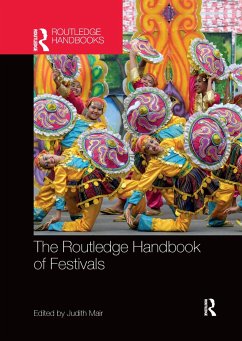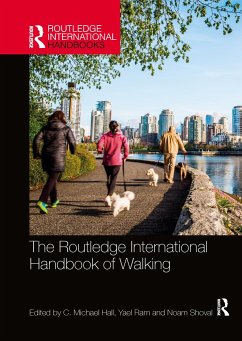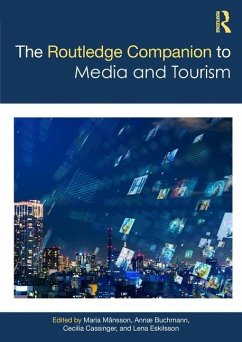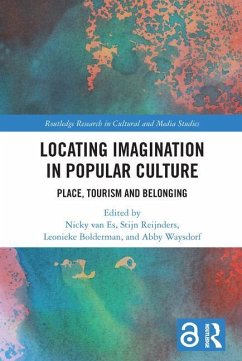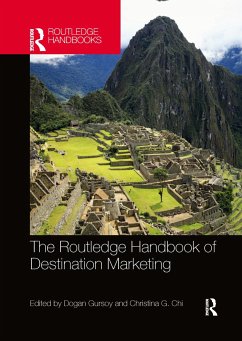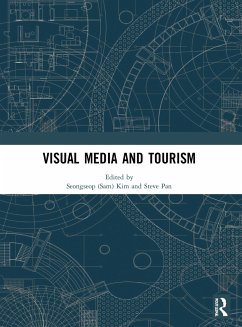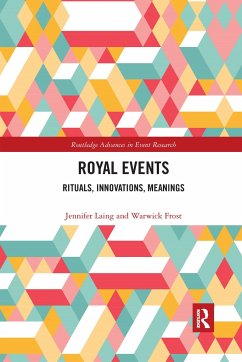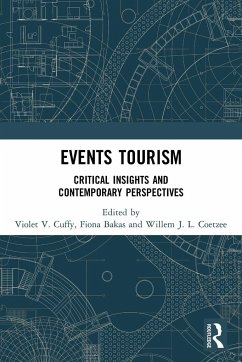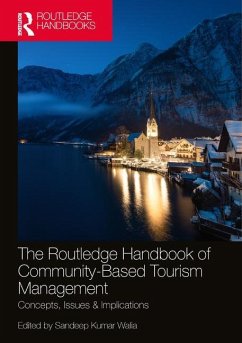
The Routledge Handbook of Popular Culture and Tourism
Versandkostenfrei!
Versandfertig in 6-10 Tagen
49,99 €
inkl. MwSt.
Weitere Ausgaben:

PAYBACK Punkte
25 °P sammeln!
This handbook provides a comprehensive overview and holistic analysis of the intersection between tourism and popular culture. It examines current debates, questions and controversies of tourism in the wake of popular culture phenomena and explores the relationships between popular culture, globalization, tourism and mobility. In addition, it offers a cross-disciplinary, cutting edge review of the character of popular cultural production and consumption trends, analyzing their consequences for tourism, spatial strategies and destination competitiveness.The scope of the volume encompasses vario...
This handbook provides a comprehensive overview and holistic analysis of the intersection between tourism and popular culture. It examines current debates, questions and controversies of tourism in the wake of popular culture phenomena and explores the relationships between popular culture, globalization, tourism and mobility. In addition, it offers a cross-disciplinary, cutting edge review of the character of popular cultural production and consumption trends, analyzing their consequences for tourism, spatial strategies and destination competitiveness.
The scope of the volume encompasses various expressions of popular culture such as cinema, TV shows, music, literature, sports and heritage. Featuring a mix of theoretical and empirical chapters, the handbook problematizes and conceptualizes the ties and clusters of popular cultural actors, thereby positioning tourism within the wider context of creative economies, cultural planning and multimodal technologies.
Written by an international team of academics with expertise in a range of disciplines, this timely book will be of interest to researchers from a variety of subjects including tourism, events, geography, cultural studies, fandom research, political economy, business, media studies and technology.
The scope of the volume encompasses various expressions of popular culture such as cinema, TV shows, music, literature, sports and heritage. Featuring a mix of theoretical and empirical chapters, the handbook problematizes and conceptualizes the ties and clusters of popular cultural actors, thereby positioning tourism within the wider context of creative economies, cultural planning and multimodal technologies.
Written by an international team of academics with expertise in a range of disciplines, this timely book will be of interest to researchers from a variety of subjects including tourism, events, geography, cultural studies, fandom research, political economy, business, media studies and technology.





